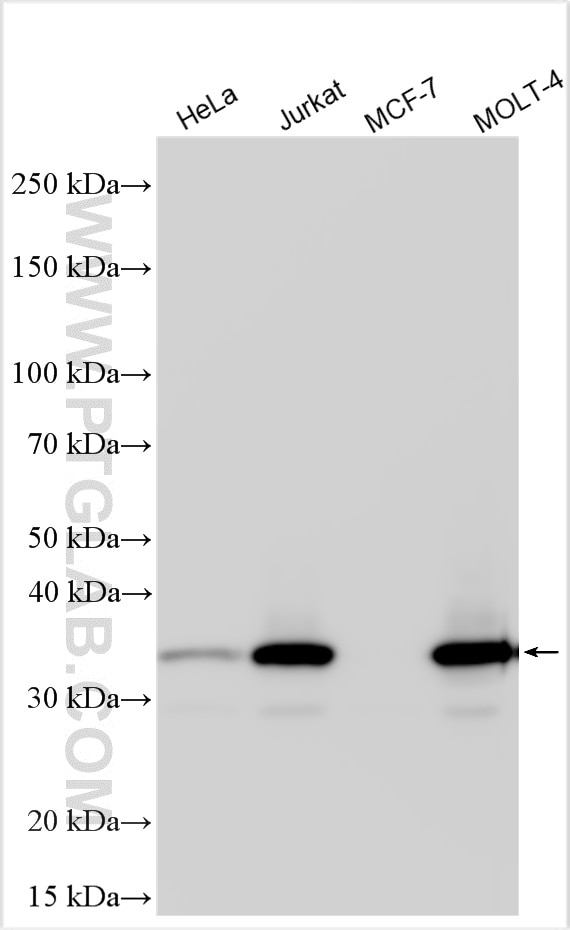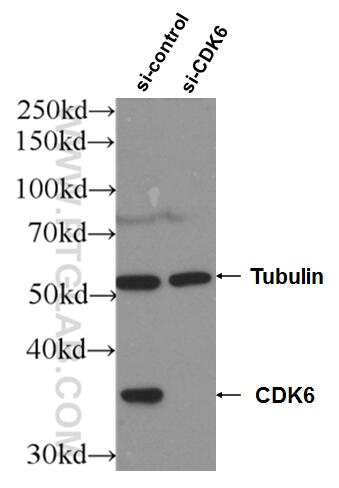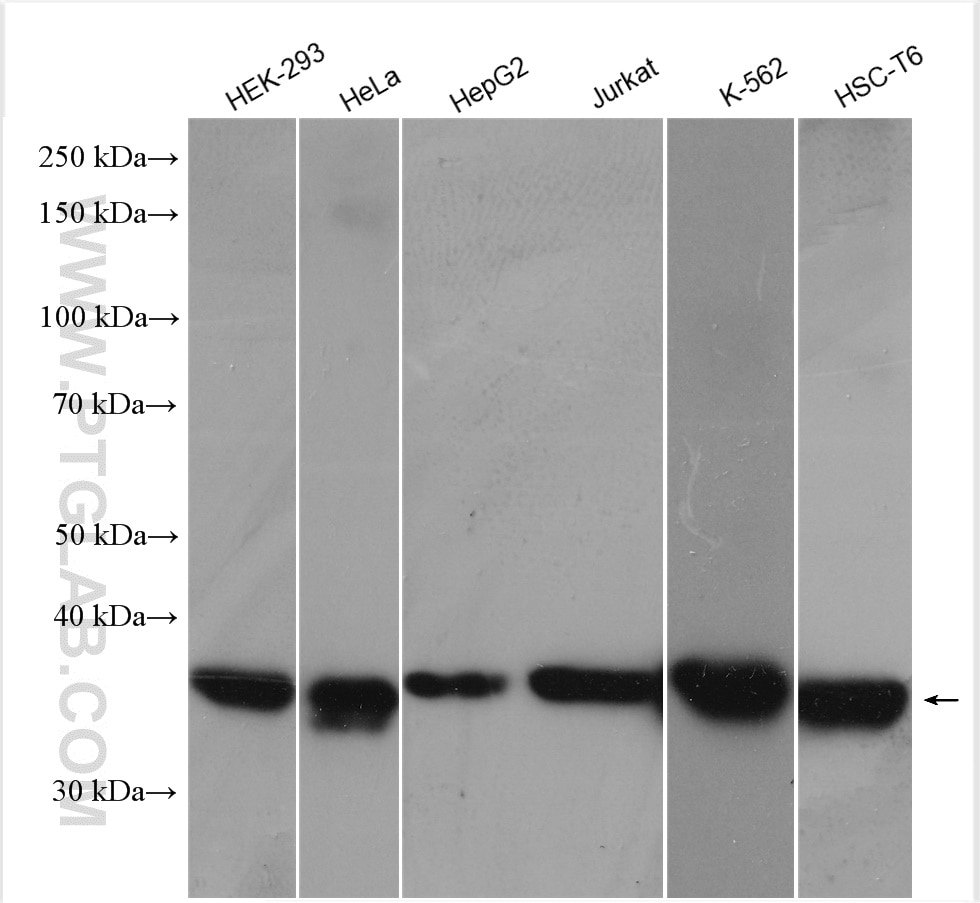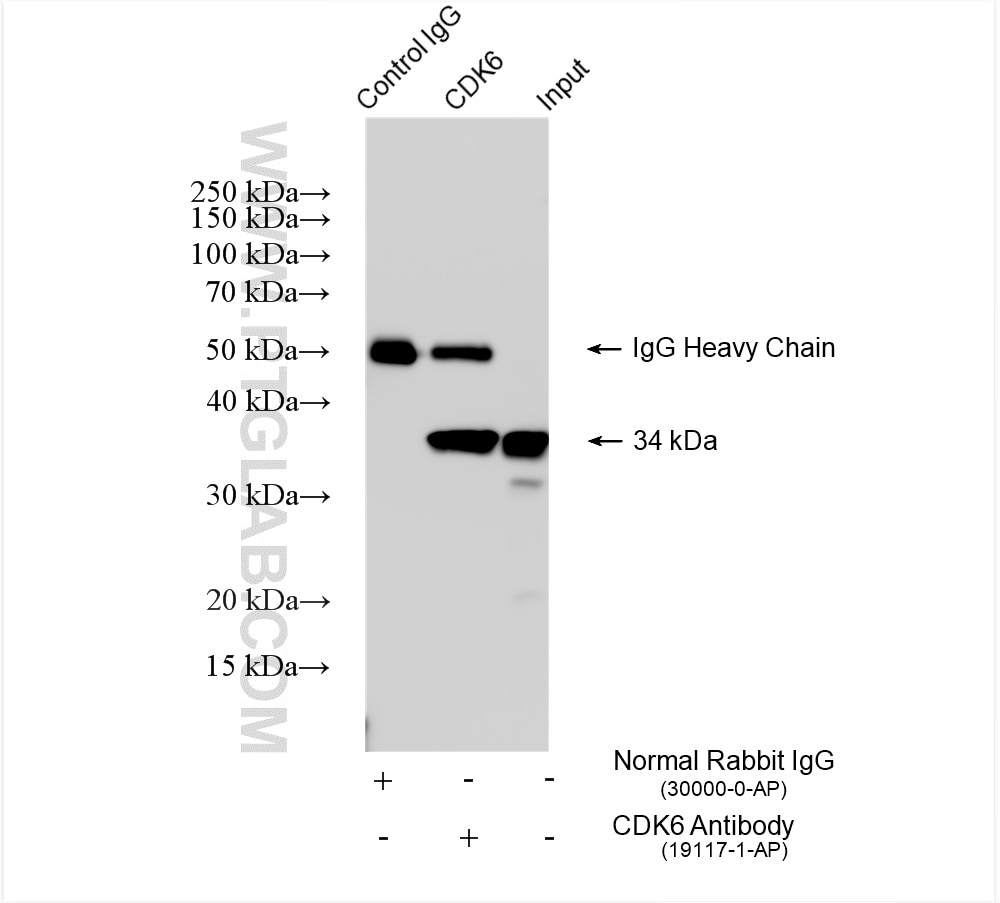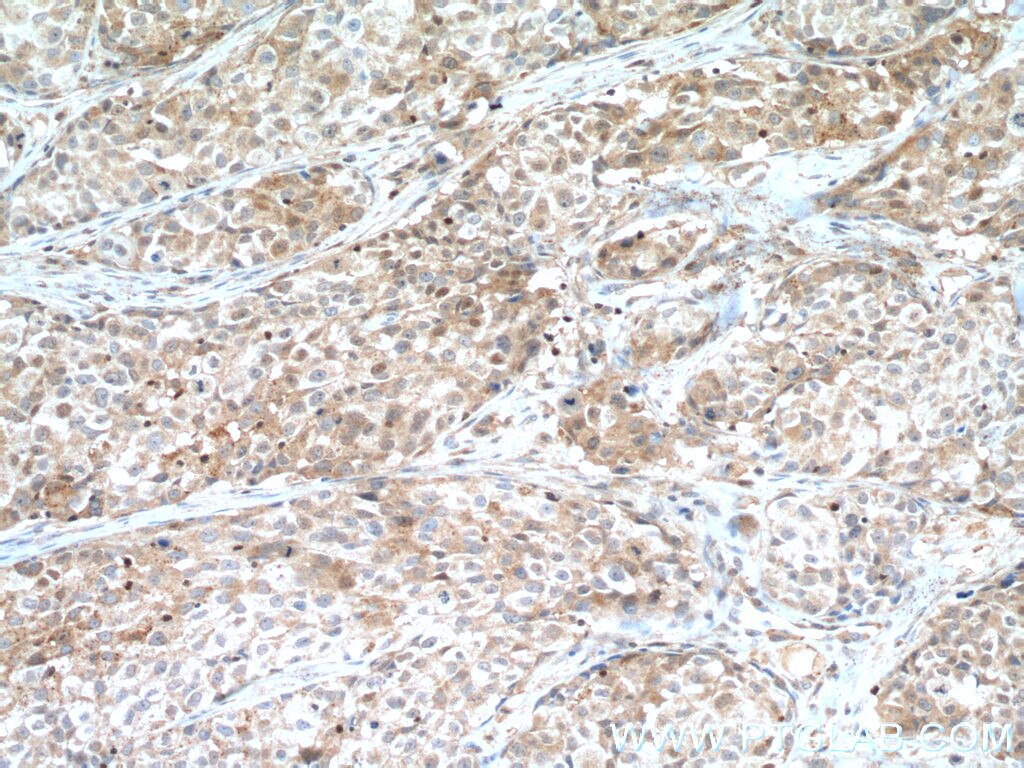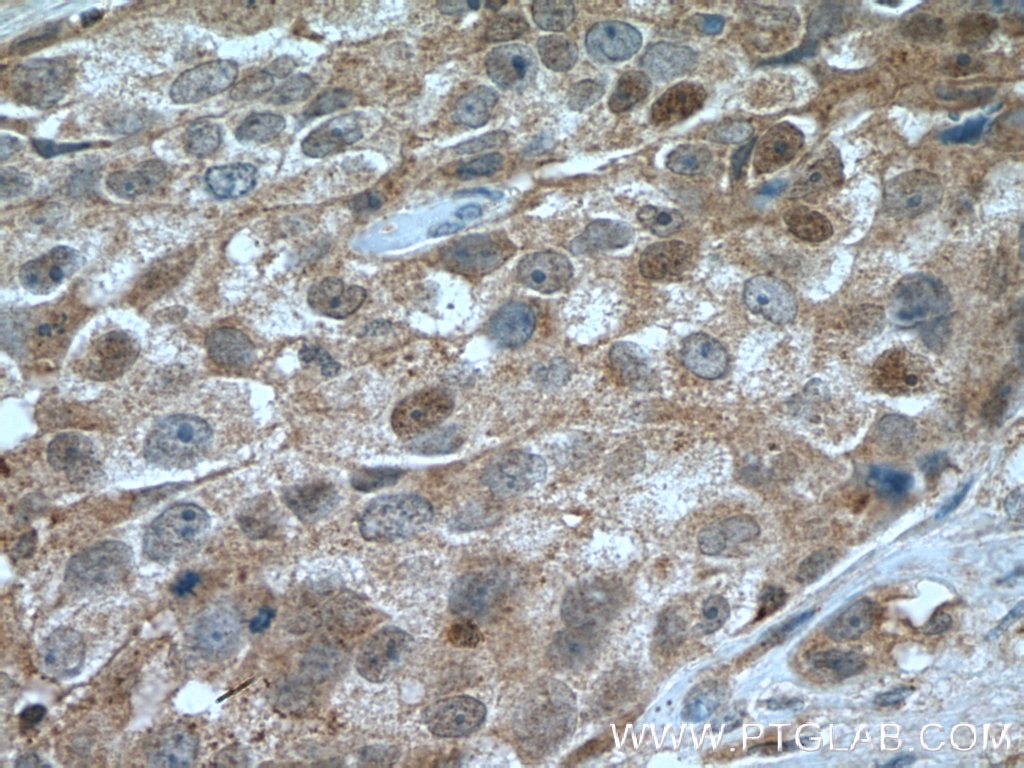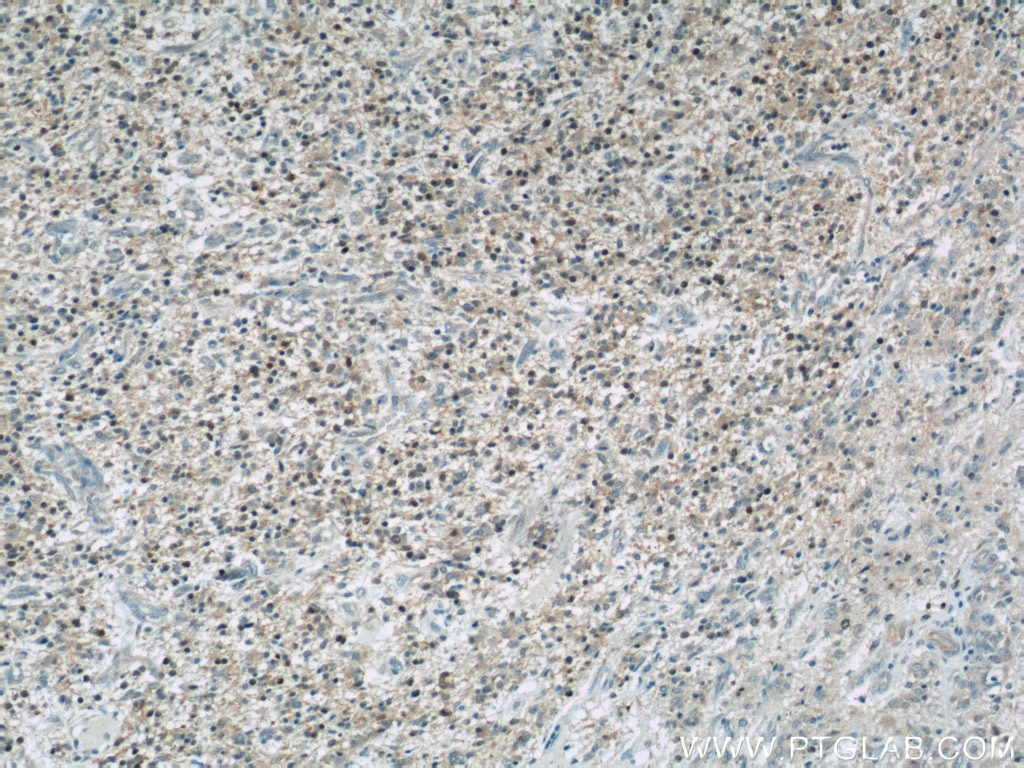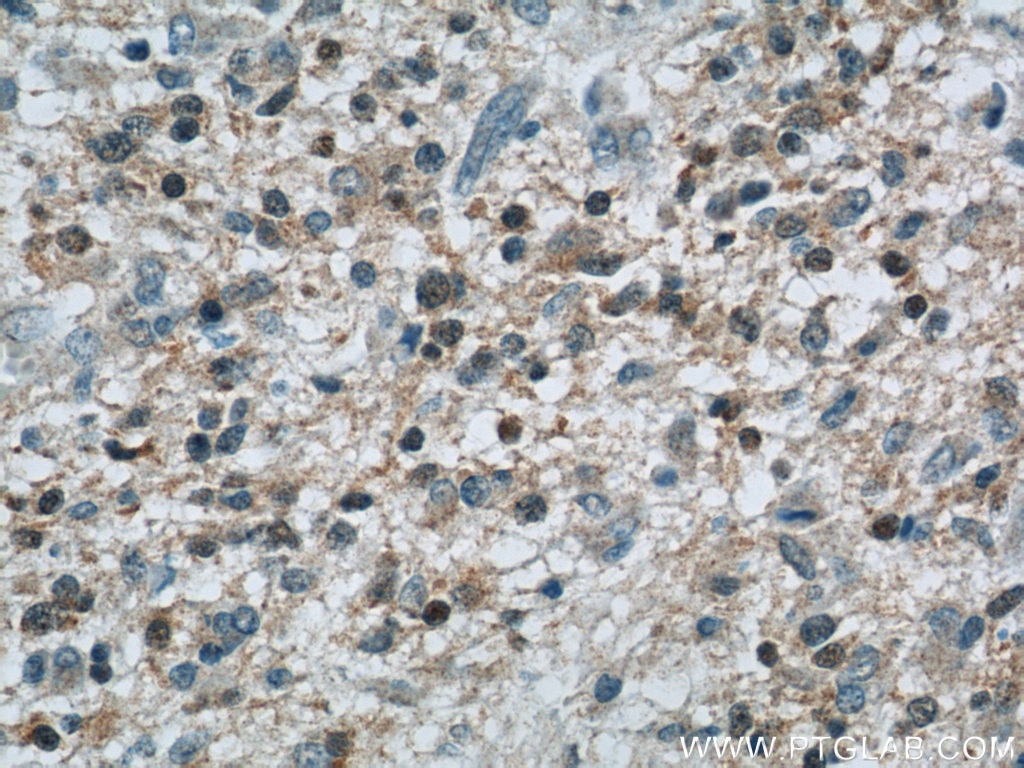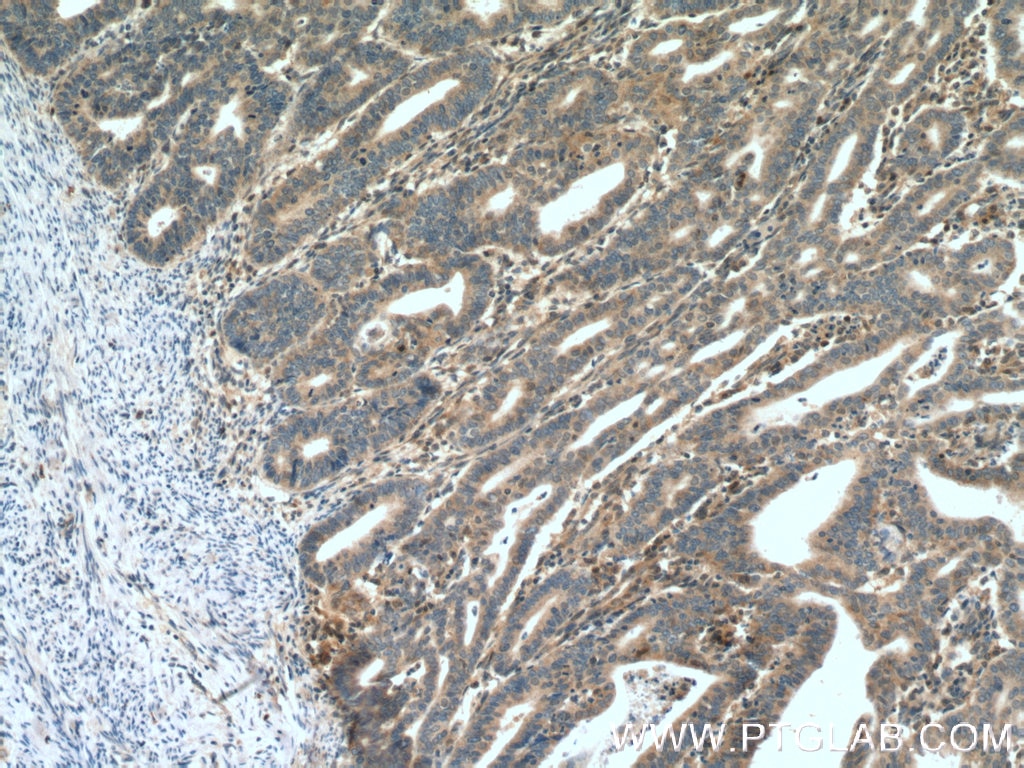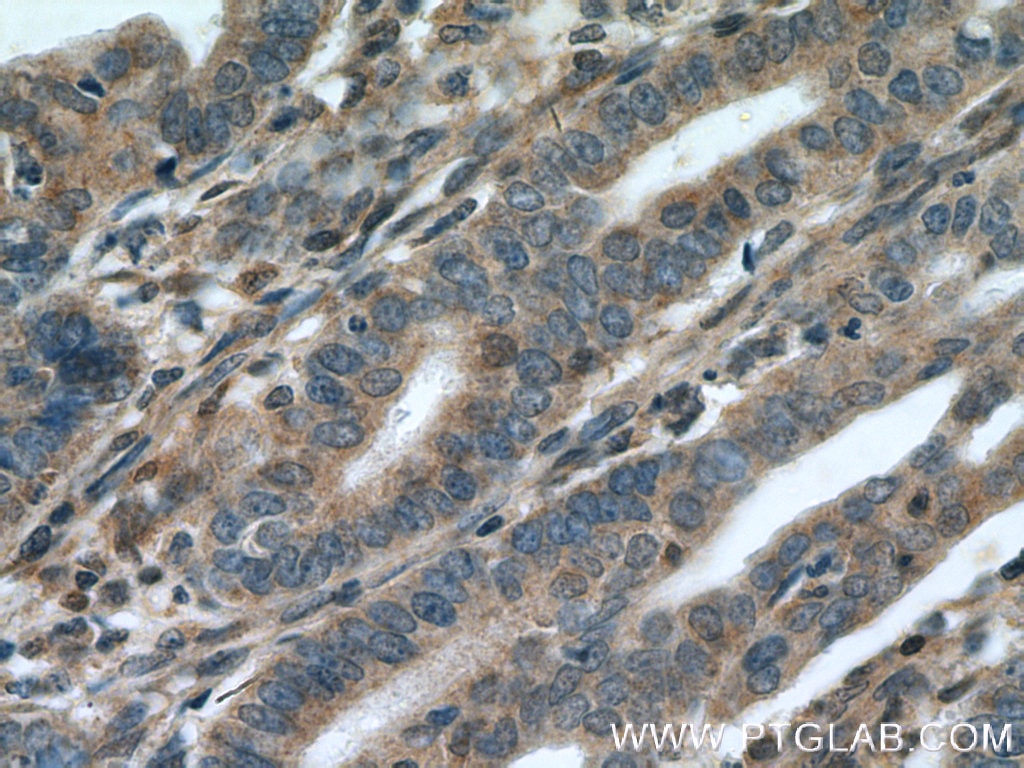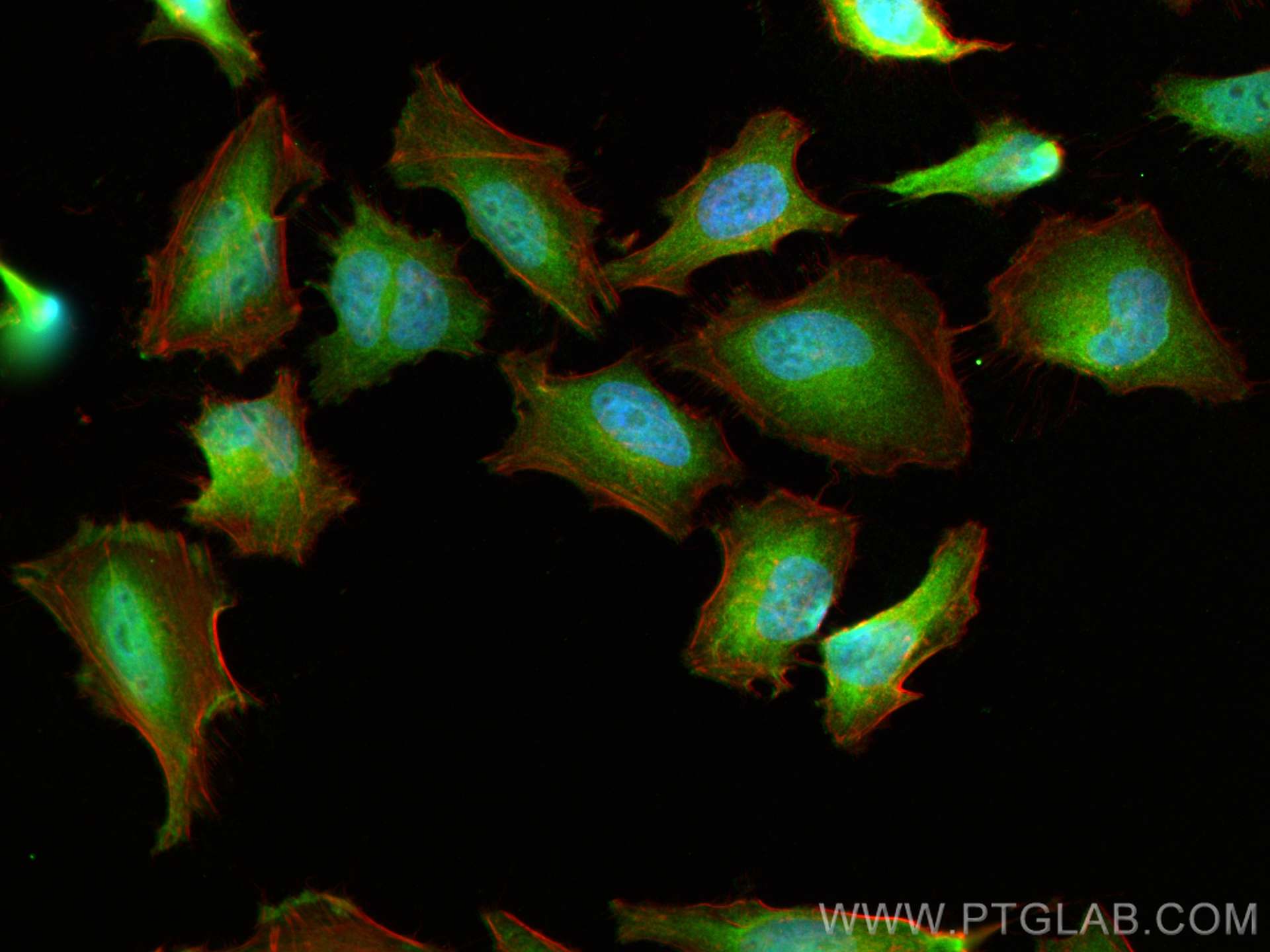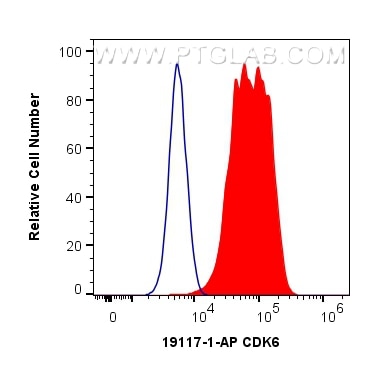Tested Applications
| Positive WB detected in | HeLa cells, HEK-293 cells, Jurkat cells, HepG2 cells, K-562 cells, HSC-T6 cells |
| Positive IP detected in | Jurkat cells |
| Positive IHC detected in | human lung cancer tissue, human gliomas tissue, human endometrial cancer tissue Note: suggested antigen retrieval with TE buffer pH 9.0; (*) Alternatively, antigen retrieval may be performed with citrate buffer pH 6.0 |
| Positive IF/ICC detected in | HeLa cells |
| Positive FC (Intra) detected in | HeLa cells |
Recommended dilution
| Application | Dilution |
|---|---|
| Western Blot (WB) | WB : 1:2000-1:12000 |
| Immunoprecipitation (IP) | IP : 0.5-4.0 ug for 1.0-3.0 mg of total protein lysate |
| Immunohistochemistry (IHC) | IHC : 1:50-1:500 |
| Immunofluorescence (IF)/ICC | IF/ICC : 1:200-1:800 |
| Flow Cytometry (FC) (INTRA) | FC (INTRA) : 0.40 ug per 10^6 cells in a 100 µl suspension |
| It is recommended that this reagent should be titrated in each testing system to obtain optimal results. | |
| Sample-dependent, Check data in validation data gallery. | |
Published Applications
| WB | See 18 publications below |
| IHC | See 1 publications below |
Product Information
19117-1-AP targets CDK6 in WB, IHC, IF/ICC, FC (Intra), IP, ELISA applications and shows reactivity with human, mouse, rat samples.
| Tested Reactivity | human, mouse, rat |
| Cited Reactivity | human, mouse, rat |
| Host / Isotype | Rabbit / IgG |
| Class | Polyclonal |
| Type | Antibody |
| Immunogen |
CatNo: Ag5600 Product name: Recombinant human CDK6 protein Source: e coli.-derived, PET28a Tag: 6*His Domain: 1-326 aa of BC027989 Sequence: MEKDGLCRADQQYECVAEIGEGAYGKVFKARDLKNGGRFVALKRVRVQTGEEGMPLSTIREVAVLRHLETFEHPNVVRLFDVCTVSRTDRETKLTLVFEHVDQDLTTYLDKVPEPGVPTETIKDMMFQLLRGLDFLHSHRVVHRDLKPQNILVTSSGQIKLADFGLARIYSFQMALTSVVVTLWYRAPEVLLQSSYATPVDLWSVGCIFAEMFRRKPLFRGSSDVDQLGKILDVIGLPGEEDWPRDVALPRQAFHSKSAQPIEKFVTDIDELGKDLLLKCLTFNPAKRISAYSALSHPYFQDLERCKENLDSHLPPSQNTSELNTA Predict reactive species |
| Full Name | cyclin-dependent kinase 6 |
| Calculated Molecular Weight | 326 aa, 36 kDa |
| Observed Molecular Weight | 36-40 kDa |
| GenBank Accession Number | BC027989 |
| Gene Symbol | CDK6 |
| Gene ID (NCBI) | 1021 |
| RRID | AB_10640575 |
| Conjugate | Unconjugated |
| Form | Liquid |
| Purification Method | Antigen affinity purification |
| UNIPROT ID | Q00534 |
| Storage Buffer | PBS with 0.02% sodium azide and 50% glycerol, pH 7.3. |
| Storage Conditions | Store at -20°C. Stable for one year after shipment. Aliquoting is unnecessary for -20oC storage. 20ul sizes contain 0.1% BSA. |
Background Information
CDK6(Cyclin-dependent kinase 6) is involved in initiation and maintenance of cell cycle exit during cell differentiation and it prevents cell proliferation and regulates negatively cell differentiation, but is required for the proliferation of specific cell types.The molecular weight of CDK6 is 36-40 KDa (PMID: 23563707, 8114739).
Protocols
| Product Specific Protocols | |
|---|---|
| FC protocol for CDK6 antibody 19117-1-AP | Download protocol |
| IF protocol for CDK6 antibody 19117-1-AP | Download protocol |
| IHC protocol for CDK6 antibody 19117-1-AP | Download protocol |
| IP protocol for CDK6 antibody 19117-1-AP | Download protocol |
| WB protocol for CDK6 antibody 19117-1-AP | Download protocol |
| Standard Protocols | |
|---|---|
| Click here to view our Standard Protocols |
Publications
| Species | Application | Title |
|---|---|---|
Theranostics Estrogen-induced circRNA, circPGR, functions as a ceRNA to promote estrogen receptor-positive breast cancer cell growth by regulating cell cycle-related genes. | ||
Cancers (Basel) A Patient-Derived Xenograft Model of Dedifferentiated Endometrial Carcinoma: A Proof-of-Concept Study for the Identification of New Molecularly Informed Treatment Approaches. | ||
Oncotarget High expression of N-myc (and STAT) interactor predicts poor prognosis and promotes tumor growth in human glioblastoma. | ||
Front Pharmacol Oxymatrine Inhibits Renal Cell Carcinoma Progression by Suppressing β-Catenin Expression. | ||
Cancer Biother Radiopharm γ-Glutamylcyclotransferase Knockdown Inhibits Growth of Lung Cancer Cells Through G0/G1 Phase Arrest. |

